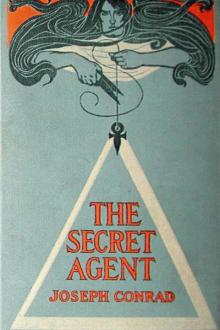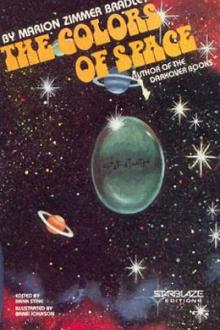Genre Fiction. Page - 273

c was susceptible to these fascinations. Mr Verloc was an intermittent patron. He came and went without any very apparent reason. He generally arrived in London (like the influenza) from the Continent, only he arrived unheralded by the Press; and his visitations set in with great severity. He breakfasted in bed, and remained wallowing there with an air of quiet enjoyment till noon every day - and sometimes even to a later hour. But when he went out he seemed to experience a great difficulty in finding his way back to his temporary home in the Belgravian square. He left it late, and returned to it early - as early as three or four in the morning; and on waking up at ten addressed Winnie, bringing in the breakfast tray, with jocular, exhausted civility, in the hoarse, failing tones of a man who had been talking vehemently for many hours together. His prominent, heavy-lidded eyes rolled sideways amorously and languidly, the bedclothes were pulled up to his chin, and his dark smooth moustache covered his thick li

t him think me--everything that is base!"
For a moment Mr. Northey looked a little nonplussed. Then, "Well, you can--you can bow to him," he said, pluming himself on his discretion in leaving the rein a trifle slack to begin. "If he force himself upon you, you will rid yourself of him with as little delay as possible. The mode I leave to you, Sophia; but speech with him I absolutely forbid. You will obey in that on pain of my most serious displeasure."
"On pain of bread and water, miss!" her sister cried venomously. "That will have more effect, I fancy. Lord, for my part, I should die of shame if I thought that I had encouraged a nameless Irish rogue not good enough to ride behind my coach. And all the town to know it."
Rage dried the tears that hung on Sophia's lids. "Is that all?" she asked, her head high. "I should like to go if that is all you have to say to me?"
"I think that is all," Mr. Northey answered.
"Then--I may go?"
He appeared to hesitate. For the first

as you like. All you got to do is sit down and wait as quiet as you can. Then pretty soon you'll find out I was right."
His comrade grunted stubbornly. For a moment he seemed to be searching for a formidable reply. Finally he said: "Well, you don't know everything in the world, do you?"
"Didn't say I knew everything in the world," retorted the other sharply. He began to stow various articles snugly into his knapsack.
The youth, pausing in his nervous walk, looked down at the busy figure. "Going to be a battle, sure, is there, Jim?" he asked.
"Of course there is," replied the tall soldier. "Of course there is. You jest wait 'til to-morrow, and you'll see one of the biggest battles ever was. You jest wait."
"Thunder!" said the youth.
"Oh, you'll see fighting this time, my boy, what'll be regular out-and-out fighting," added the tall soldier, with the air of a man who is about to exhibit a battle for the benefit of his friends.
"Huh!" said the loud one from a cor

the Lhari that way, yet they're as human as we are! Slaves of the Lhari!"
Bart felt the involuntary surge of anger, instantly controlled. "It's not that way at all. My mother was a Mentorian, remember. She made five cruises on a Lhari ship before she married my father."
Tommy sighed. "I guess I'm just jealous--to think the Mentorians can sign on the Lhari ship as crew, while you and I will never pilot a ship between the stars. What did she do?"
"She was a mathematician. Before the Lhari met up with men, they used a system of mathematics as clumsy as the old Roman numerals. You have to admire them, when you realize that they learned stellar navigation with their old system, though most ships use human math now. And of course, you know their eyes aren't like ours. Among other things, they're color-blind. They see everything in shades of black or white or gray.
"So they found out that humans aboard their ships were useful. You remember how humans, in the early days in space,

ave himself from cipherdom, find an affirmative position. His thousand and three affairs of gallantry, after becoming, at most, two immature intrigues leading to sordid and prolonged complications and humiliations, have been discarded altogether as unworthy of his philosophic dignity and compromising to his newly acknowledged position as the founder of a school. Instead of pretending to read Ovid he does actually read Schopenhaur and Nietzsche, studies Westermarck, and is concerned for the future of the race instead of for the freedom of his own instincts. Thus his profligacy and his dare-devil airs have gone the way of his sword and mandoline into the rag shop of anachronisms and superstitions. In fact, he is now more Hamlet than Don Juan; for though the lines put into the actor's mouth to indicate to the pit that Hamlet is a philosopher are for the most part mere harmonious platitude which, with a little debasement of the word-music, would be properer to Pecksniff, yet if you separate the real hero, inartic

ith his little sisters Laura and Lotty clinging to him.
"Take Jill, too, for it's my opinion she has broken her back. She can't stir one bit," announced Molly Loo, with a droll air of triumph, as if rather pleased than otherwise to have her patient hurt the worse; for Jack's wound was very effective, and Molly had a taste for the tragic.
This cheerful statement was greeted with a wail from Susan and howls from Boo, who had earned that name from the ease with which, on all occasions, he could burst into a dismal roar without shedding a tear, and stop as suddenly as he began.
"Oh, I am so sorry! It was my fault; I shouldn't have let her do it," said Jack, distressfully.
"It was all my fault; I made him. If I'd broken every bone I've got, it would serve me right. Don't help me, anybody; I'm a wicked thing, and I deserve to lie here and freeze and starve and die!" cried Jill, piling up punishments in her remorseful anguish of mind and body.
"But we want to help you, and

nly look up and say 'who am I then? answer me that first, and then, if I like being that person, I'll come up: if not, I'll stay down here till I'm somebody else--but, oh dear!" cried Alice with a sudden burst of tears, "I do wish they would put their heads down! I am so tired of being all alone here!"
As she said this, she looked down at her hands, and was surprised to find she had put on one of the rabbit's little gloves while she was talking. "How can I have done that?" thought she, "I must be growing small again." She got up and went to the table to measure herself by it, and found that, as nearly as she could guess, she was now about two feet high, and was going on shrinking rapidly: soon she found out that the reason of it was the nosegay she held in her hand: she dropped it hastily, just in time to save herself from shrinking away altogether, and found that she was now only three inches high.
"Now for the garden!" cried Alice, as she hurried back to the little door, but the little door wa

well said," replied Mr. Campbell, heartily. "And now to cometo the material, or (to make a quibble) to the immaterial. I have herea little packet which contains four things." He tugged it, as he spoke,and with some great difficulty, from the skirt pocket of his coat. "Ofthese four things, the first is your legal due: the little pickle moneyfor your father's books and plenishing, which I have bought (as I haveexplained from the first) in the design of re-selling at a profit tothe incoming dominie. The other three are gifties that Mrs. Campbell andmyself would be blithe of your acceptance. The first, which is round,will likely please ye best at the first off-go; but, O Davie, laddie,it's but a drop of water in the sea; it'll help you but a step, andvanish like the morning. The second, which is flat and square andwritten upon, will stand by you through life, like a good staff for theroad, and a good pillow to your head in sickness. And as for the last,which is cubical, that'll see you, it's my pra

ient looked down with a rueful face at his own unconventional appearance.
"I'm sure it must look very bad, Mr. Holmes, and I am not aware that in my whole life such a thing has ever happened before. But will tell you the whole queer business, and when I have done so you will admit, I am sure, that there has been enough to excuse me."
But his narrative was nipped in the bud. There was a bustle outside, and Mrs. Hudson opened the door to usher in two robust and official-looking individuals, one of whom was well known to us as Inspector Gregson of Scotland Yard, an energetic, gallant, and, within his limitations, a capable officer. He shook hands with Holmes and introduced his comrade as Inspector Baynes, of the Surrey Constabulary.
"We are hunting together, Mr. Holmes, and our trail lay in this direction." He turned his bulldog eyes upon our visitor. "Are you Mr. John Scott Eccles, of Popham House, Lee?"
"I am."
"We have been following you about all the morning."
"You t

have been "hallucinated," and proceeds to give the theory of sensory hallucination. She forgets that, by her own showing, there is no reason to suppose that anybody has been hallucinated at all. Someone (unknown) has met a nurse (unnamed) who has talked to a soldier (anonymous) who has seen angels. But that is not evidence; and not even Sam Weller at his gayest would have dared to offer it as such in the Court of Common Pleas. So far, then, nothing remotely approaching proof has been offered as to any supernatural intervention during the Retreat from Mons. Proof may come; if so, it will be interesting and more than interesting.
But, taking the affair as it stands at present, how is it that a nation plunged in materialism of the grossest kind has accepted idle rumours and gossip of the supernatural as certain truth? The answer is contained in the question: it is precisely because our whole atmosphere is materialist that we are ready to credit anything--save the truth. Separate a man from